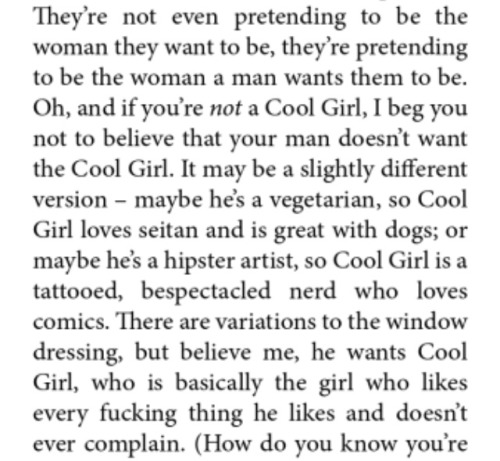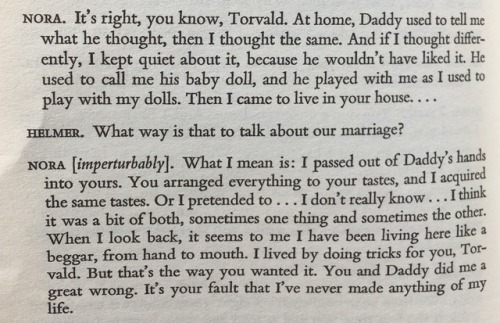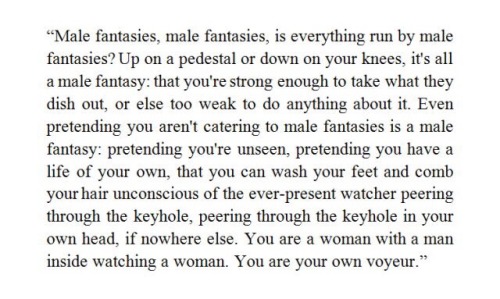They Lived And Laughed And Loved And Left.









They lived and laughed and loved and left.
Joanne Harris // Cecelia Ahern // Illustration by Cecile Richard // Rupi Kaur // Margarita Karapanou // Miranda July // Taylor Swift // T. R. Hummer // Richard Siken // James Joyce
More Posts from Purposefullylackadaisical and Others
“call me medusa for my monstrosity is not mine to bear, but yours to fear.”
— a.c (via onceuponapenis)
oh how the horror of existence eats away at my heart but look how i cling on to the simplest acts of compassion, kind gestures, easy natural connections. bitter as i am i can't help looking at the world as if it's handmade just for me. i love loving, i love loving people. i love a soft love. no drama. no loudness. no doors being slammed. a silent love. steeped into the heart like a strong tea. jasmine scented. a love nurtured and moulded delicately with sturdy hands on a potter's wheel. a love made with love. a love to live for. a love that makes you want to stay alive, for tiny birds and the sky, for the ocean and the charcoal night. dying is no feat, we die all the time. if you are a lover, you must do the unthinkable, you must live. for you will be remembered and you will be immortalized in every bit of beauty that ever graces this earth.

— mimi evangeline, from girlhood is godhood

notes on medusa
The woman who eschews femininity, who is content with her natural shape and size and smell, who is impatient with the lengthy rituals of femininity, is condemned by both sexes. To women, she is an uncomfortable reminder of the extent to which they have abandoned themselves to the demands of men. To men, she is a threatening warning that their domination is not total and that women still have the power to regain themselves.
- Anne Summers, Damned Whores and God’s Police



a short collection on catering to men. Gone Girl by Gillian Flynn (2012) A Doll’s House by Henrik Ibsen (1879) The Robber Bride by Margaret Atwood (1993)

“This new focus on the more real, intimate side of girlhood has been largely rewarded by viewers and corporate partners alike. But what makes young women in particular so poised to take up this conversation, and ultimately profit from the interest of their (largely female) audience? For one, demonstrating high levels of personal and emotional intelligence is a prerequisite for being an idealized vision of a successful young woman. Many of these emerging trends in pop culture — yes, even in niche YouTube videos — indicate society’s intense interest in women developing a heightened awareness of the self. Feminist theory has long held that women practice self-surveillance (and therefore self-discipline) because of the immense pressures they face. From the expectation that girls know their specific body “type” (curvy on top! petite! pear-shaped!) to find the ideal jeans fit, to the myriad wellness and self-help circuits that focus on turning inward to find healing, to the health and diet fads that are rooted in self-diagnosis and self-treatment, girls and women are believed to find success through knowing and monitoring themselves intensely. The question is, if more and more gurus are turning inward, seemingly more interested in taking care of the self, then how do they continue to encourage other people to buy products that are largely focused on outward appearance? That’s where their established position as beauty experts comes into play. Buying products is one thing — but buying the right products signifies self-knowledge and the ability to care for oneself. Retail spending is blended with political and social freedom, something girls’ studies scholar Anita Harris calls a “linking of neoliberal ideologies about individual choice with a distorted kind of feminism.” Girls’ ability to make purchases is often seen as empowering, in its display of personal wealth amassed and its demonstration of knowing oneself best. The young women on YouTube have deftly manipulated this ethic to their advantage. There are only so many videos one can make about eyeshadow palettes or bubble bath before finding a new narrative through which to talk about them.”
— How YouTubers Like Zoella Capitalize On The Self-Care Movement (via thecrownedgoddess)
No two women have the same experience. All feminism is founded not on actual essential unity, but on political coalition and affirmation of shared political needs and goals.
Race, culture, class, birth assignment, religion, and countless other factors mean all women experience womanhood differently. Excluding trans women because we have a different life experience misses the point that all women have different life experiences. This idea isn’t even new, its not even specific to trans women, its literally the point Crenshaw and Collins and Mohanty and countless other woc and third world feminists have been making for decades now.
“How do we forgive our fathers? Maybe in a dream. Do we forgive our fathers for leaving us too often, or forever, when we were little? Maybe for scaring us with unexpected rage, or making us nervous because there never seemed to be any rage there at all? Do we forgive our fathers for marrying, or not marrying, our mothers? Or divorcing, or not divorcing, our mothers? And shall we forgive them for their excesses of warmth or coldness? Shall we forgive them for pushing, or leaning? For shutting doors or speaking through walls? For never speaking, or never being silent? Do we forgive our fathers in our age, or in theirs? Or in their deaths, saying it to them or not saying it. If we forgive our fathers, what is left?”
— Thomas Builds-the-Fire, Smoke Signals (Sherman Alexie)
-
 ghostongasoline liked this · 1 month ago
ghostongasoline liked this · 1 month ago -
 thatcollateraldamage reblogged this · 1 month ago
thatcollateraldamage reblogged this · 1 month ago -
 whvmsy liked this · 1 month ago
whvmsy liked this · 1 month ago -
 jcnghyunnie reblogged this · 1 month ago
jcnghyunnie reblogged this · 1 month ago -
 venussss0-blog liked this · 1 month ago
venussss0-blog liked this · 1 month ago -
 littlechangesinyourself reblogged this · 3 months ago
littlechangesinyourself reblogged this · 3 months ago -
 og-fanofmyself reblogged this · 3 months ago
og-fanofmyself reblogged this · 3 months ago -
 og-fanofmyself liked this · 3 months ago
og-fanofmyself liked this · 3 months ago -
 penicilline reblogged this · 3 months ago
penicilline reblogged this · 3 months ago -
 penicilline liked this · 3 months ago
penicilline liked this · 3 months ago -
 dreamywolf27 liked this · 5 months ago
dreamywolf27 liked this · 5 months ago -
 cavalierprimetime reblogged this · 5 months ago
cavalierprimetime reblogged this · 5 months ago -
 riccis liked this · 5 months ago
riccis liked this · 5 months ago -
 silversonrise liked this · 6 months ago
silversonrise liked this · 6 months ago -
 aanah liked this · 6 months ago
aanah liked this · 6 months ago -
 oodysseus liked this · 6 months ago
oodysseus liked this · 6 months ago -
 undisclosedation liked this · 6 months ago
undisclosedation liked this · 6 months ago -
 mallowsinbloom liked this · 7 months ago
mallowsinbloom liked this · 7 months ago -
 the-ever-evolving-queendom liked this · 7 months ago
the-ever-evolving-queendom liked this · 7 months ago -
 lucifersleftasscheek reblogged this · 9 months ago
lucifersleftasscheek reblogged this · 9 months ago -
 malecasanova liked this · 10 months ago
malecasanova liked this · 10 months ago -
 nonbinaryscorpio reblogged this · 10 months ago
nonbinaryscorpio reblogged this · 10 months ago -
 yjuniper reblogged this · 10 months ago
yjuniper reblogged this · 10 months ago -
 junebugfall liked this · 10 months ago
junebugfall liked this · 10 months ago -
 pecygrimangry liked this · 10 months ago
pecygrimangry liked this · 10 months ago -
 mishrisugar reblogged this · 10 months ago
mishrisugar reblogged this · 10 months ago -
 mishrisugar liked this · 10 months ago
mishrisugar liked this · 10 months ago -
 amelsaiditfirst reblogged this · 10 months ago
amelsaiditfirst reblogged this · 10 months ago -
 amelsaiditfirst liked this · 10 months ago
amelsaiditfirst liked this · 10 months ago -
 bookbutterfly1999 liked this · 10 months ago
bookbutterfly1999 liked this · 10 months ago -
 lvrxgrl liked this · 10 months ago
lvrxgrl liked this · 10 months ago -
 yung-gxd reblogged this · 10 months ago
yung-gxd reblogged this · 10 months ago -
 bloodyghostt liked this · 10 months ago
bloodyghostt liked this · 10 months ago -
 blackveilvamp liked this · 10 months ago
blackveilvamp liked this · 10 months ago -
 benotafraiiid liked this · 10 months ago
benotafraiiid liked this · 10 months ago -
 lemonadeoujo reblogged this · 11 months ago
lemonadeoujo reblogged this · 11 months ago -
 lemonadeoujo liked this · 11 months ago
lemonadeoujo liked this · 11 months ago -
 slightlyattachedtoyou reblogged this · 11 months ago
slightlyattachedtoyou reblogged this · 11 months ago -
 cliffsides liked this · 11 months ago
cliffsides liked this · 11 months ago -
 553bluehour liked this · 11 months ago
553bluehour liked this · 11 months ago -
 guineveresgarden liked this · 1 year ago
guineveresgarden liked this · 1 year ago -
 dieabadass reblogged this · 1 year ago
dieabadass reblogged this · 1 year ago -
 whenwillwoodyallendie reblogged this · 1 year ago
whenwillwoodyallendie reblogged this · 1 year ago
95 posts